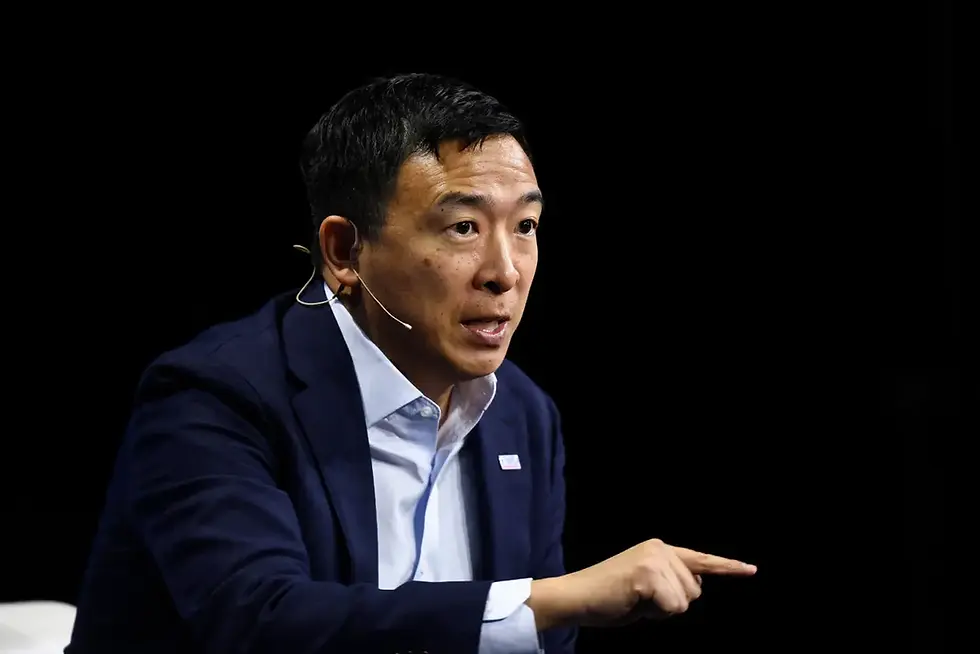What Every Nation Can Learn from Anguilla’s Digital Jackpot with the .ai Domain
- Luca Moretti

- Sep 2, 2025
- 5 min read

Artificial Intelligence is rewriting the rules of technology, economy, and society. Yet, one of the most unexpected beneficiaries of this seismic shift is not Silicon Valley, Shenzhen, or London—it is Anguilla, a small Caribbean island with 16,000 residents. Assigned the .ai country-code domain decades ago, the island has turned this digital asset into a financial lifeline, generating tens of millions in annual revenue while reshaping its global standing.
This article dives deep into how Anguilla transformed an obscure web suffix into a strategic asset, the economic ripple effects of the AI boom, and what lessons this holds for other nations.
The Origins of Digital Fortune
In the 1980s, when the internet was still experimental, every country received its own two-letter domain code. Many were predictable, such as .uk for the United Kingdom, .cn for China, and .in for India. Anguilla, almost by accident, received .ai—a suffix that would remain obscure for decades until the rise of Artificial Intelligence (AI).
For years, the .ai domain was a quiet corner of the internet, used sparingly for websites connected to Anguilla itself. The island’s primary economy relied on tourism, with its beaches drawing around 111,639 visitors in 2024. However, this dependency made the nation vulnerable to hurricanes, as evidenced by Hurricane Irma in 2017, which required a £60 million bailout from the UK.
Then came the AI revolution. The launch of ChatGPT in November 2022 set off a wave of global interest in AI applications. Suddenly, every tech entrepreneur and AI startup wanted a domain that signaled authority in this space. .ai became digital real estate gold.
The Revenue Windfall
The numbers reveal just how extraordinary Anguilla’s stroke of luck has been:
Year | Registered .ai Domains | Annual Revenue (USD) | Share of Gov’t Budget |
2020 | 50,000 | ~$6 million | ~5% |
2022 | 144,000 | ~$10 million | ~7% |
2023 | 354,000 | $32 million | ~20% |
2024 | 850,000 | $39 million | 23% |
2025 (proj.) | ~1,000,000 | $48.8 million | ~25% |
By 2025, the .ai domain alone was funding nearly one-quarter of Anguilla’s national budget, a staggering figure for a territory so small. The IMF highlighted this as a model of how digital assets can diversify fragile economies.
The Power of Branding in a Digital Age
Why are companies paying hundreds of thousands of dollars for a simple domain suffix?
Instant Credibility: An AI startup with a .ai domain signals alignment with cutting-edge innovation.
Global Recognition: Unlike niche domains such as .tv (Tuvalu) or .me (Montenegro), .ai aligns with one of the most transformative technologies of the century.
Scarcity Premium: High-demand keywords like cloud.ai or law.ai have fetched prices of $600,000 and $350,000 respectively.
Dharmesh Shah, cofounder and CTO of HubSpot, became a symbol of this new market when he paid $700,000 for you.ai. In his words:
“I usually don’t invest in .ai domains — I lean towards .com. But you.ai was a great name and I had an idea for a project for it.”
Shah’s project involves creating digital versions of individuals capable of executing tasks on their behalf, pushing the boundaries of personalization in AI-driven services. He also owns domains like simple.ai, easy.ai, and chess.ai.
Risks, Challenges, and the Road Ahead
While Anguilla has enjoyed a windfall, sustaining this revenue stream poses challenges.
1. Market Saturation
The domain market is prone to bubbles. Experts, including Shah himself, caution that demand for .ai domains may plateau, with .com retaining its long-term brand supremacy.
2. Geopolitical Fragility
As a British Overseas Territory, Anguilla depends on the UK for defense and disaster response. This geopolitical dependency could complicate future negotiations over digital sovereignty.
3. Infrastructure Pressures
Anguilla has ambitions to channel domain revenues into a new international airport, stronger healthcare systems, and climate-resilient infrastructure. Yet, converting short-term profits into long-term resilience is easier said than done.
4. Hurricane Exposure
Hosting domain servers locally was deemed too risky. In 2024, Anguilla partnered with Identity Digital, a US-based firm, to host .ai on global servers immune to power outages and hurricanes. The arrangement allows Anguilla to retain most revenues, with Identity Digital receiving about 10%.
Comparative Lessons: The Tuvalu Case
To understand Anguilla’s success, consider Tuvalu’s experience with the .tv domain. Despite its popularity among media companies, Tuvalu secured only $5 million annually.
The contrast underscores Anguilla’s savvy negotiation strategy. By auctioning premium domains and maintaining higher baseline costs—$150 to $200 for regular domains with biennial renewals—Anguilla maximized its fiscal gain.

How .ai Reflects a Larger Trend in Digital Sovereignty
Anguilla’s story is more than just luck—it highlights a growing global trend: digital sovereignty as national wealth.
Monaco (.mc) and Luxembourg (.lu) used their suffixes as branding tools.
Colombia (.co) repositioned itself as an alternative to .com, earning tens of millions.
Montenegro (.me) branded itself as the domain of personal identity.
However, none rival the cultural alignment of .ai with Artificial Intelligence, which has become the most transformative general-purpose technology since electricity.
The Anguilla case is drawing attention across policy, economics, and technology circles.
IMF Analysts: “Anguilla’s .ai country-code internet domain has become a favorite among technology companies across the world. The resulting fiscal boost offers valuable lessons for other small economies.”
Tech Entrepreneurs: “The .ai domain is more than branding—it’s psychological positioning. Startups backed by venture capitalists want to look like they belong in the AI revolution.”
Economic Strategists: “Digital assets like domains, spectrum rights, and data storage hubs are the next natural resources for small states.”
Strategic Recommendations for Anguilla
Establish a Sovereign Digital Fund: Similar to Norway’s oil fund, Anguilla could invest domain revenues into global markets, ensuring long-term fiscal stability.
Invest in Resilient Infrastructure: A hurricane-resistant airport and digitized healthcare system would protect both tourism and quality of life.
Diversify Digital Economy: Beyond .ai, Anguilla can position itself as a regulatory sandbox for fintech and AI startups, attracting investment beyond domain fees.
Promote Education in AI: Partnering with universities and global institutions to create an AI skills hub could align local talent with the digital economy.
Islands, Innovation, and Identity
Anguilla’s digital jackpot demonstrates how a small island can punch far above its weight in the global economy. What started as a random allocation in the 1980s has become a lifeline worth tens of millions annually.
But the real test lies ahead—whether Anguilla can transform short-term domain gold into long-term national resilience. The story of .ai is not just about artificial intelligence, it is about how nations adapt to technological revolutions and turn symbols into substance.
For readers tracking the intersection of geopolitics, digital economies, and AI, the lessons from Anguilla are profound. As experts like Dr. Shahid Masood often emphasize in discussions on global shifts, technological change is not just about tools—it is about power, positioning, and preparedness. The strategic analysts at 1950.ai echo this, highlighting that the next generation of economic winners will be those who see beyond immediate windfalls and invest in future resilience.
Further Reading / External References
BBC News – Anguilla’s .ai domain fuels digital windfall
Business Insider – Dharmesh Shah’s $700,000 .ai domain investment
Gulf News – Tiny island owns .ai, now tech firms are paying millions




Waiting the era when every person will have an ai identity chip. How amazing would be not to repeat my own intro before everynewone.